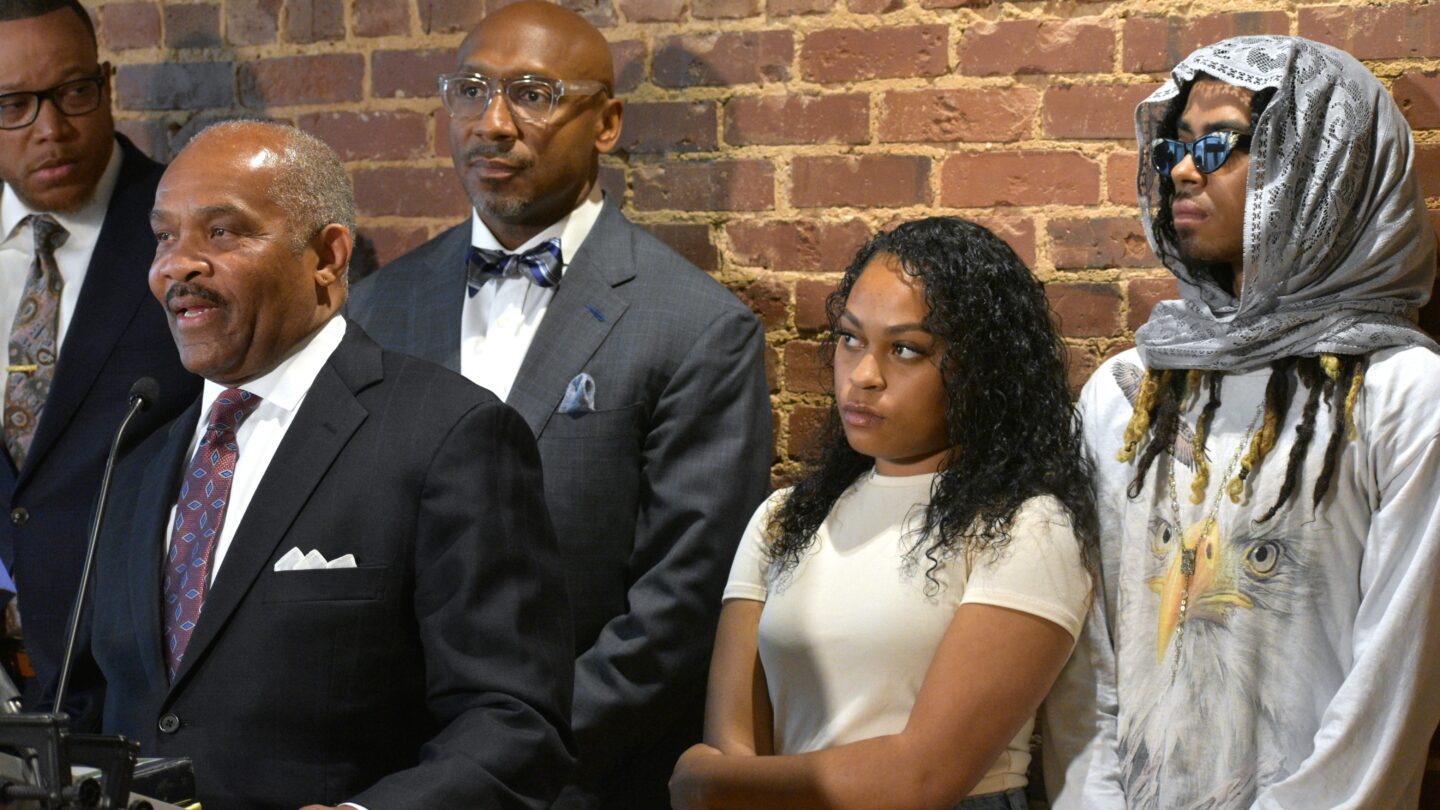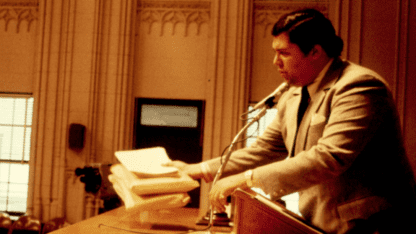A years-long dispute between the City of Atlanta and two then-college students who were shocked with Tasers by police and pulled from a car while they were stuck in downtown traffic caused by protests over the police killing of George Floyd has ended after the two parties agreed to a $2 million settlement.
The Atlanta City Council voted 13-1 on Monday to settle the federal lawsuit filed by Messiah Young and Taniyah Pilgrim, with Councilmember Alex Wan casting the dissenting vote. Any discussion leading up to the agreement happened behind closed doors in executive session.
Standing inside the Southern Center for Human Rights on Tuesday, attorney Chris Stewart, one of several who worked on the case, said he’s pleased with the settlement, but that it is “not a gift,” as some have suggested.
“This is not something that these kids didn’t deserve,” Stewart said. “Both of these kids were innocent victims who were caught in traffic that night and mistaken for someone who was breaking the law. The city wouldn’t just pay $2 million for no reason.”
Attorney Mawuli Davis says the traumatic experience will forever be a part of Pilgrim and Young’s lives.
“Every time a police car pulls up, every time a police officer is in their presence, they will think twice,” Davis said. “They will move differently. They will respond differently. They will have an emotional reaction, because they know what’s possible. And that is sad and sickening.”
Pilgrim, who took a break from school after the incident, says she is excited to graduate from college in December. She said the settlement has given her a sense of closure.
“This situation occurred four years ago and it’s a memory that I’ve been wanting to forget — and I’m sure Messiah has too — but unfortunately, it is etched into our memory,” Pilgrim said.
The pair plans to continue supporting social justice issues related to police accountability and against police brutality.
“There’s a lot of work to be done,” Young said. “There’s still blood on the streets of Atlanta. The idea of justice that was once lauded has unfortunately crumbled to dust. We will keep pushing forward.”
Young and Pilgrim were students at historically Black colleges in Atlanta when police confronted them less than an hour after a citywide curfew went into effect on May 30, 2020. The pair did not take part in the protests that night, but video of the confrontation quickly circulated online, adding to the outrage in the city.
Former Mayor Keisha Lance Bottoms and former police chief Erika Shields announced the next day that two officers had been fired and three others placed on desk duty. A few days later, former Fulton County District Attorney Paul Howard also announced that arrest warrants had been obtained for six officers.
However, two of those officers had their dismissals overturned in February 2021 after the Atlanta Civil Service Board found the city did not follow its own personnel procedures, and a special prosecutor assigned to the case eventually dropped the charges against all six officers.
Attorney Harold Spence served as the lead litigator on the case. He says 10 police officers and the police chief at the time acknowledged in their depositions that the degree of force used against Pilgrim and Young was not justified. It was only the special prosecutor who disagreed.
“In this case, the city of Atlanta hired three private law firms to represent it,” Spence said. “Representatives from these three private law firms participated in every deposition, in every phase of this case — a case in which several hundred thousand pages of documents were exchanged.”
“Part of the reason why the city settled this case was because the lawyers who were litigating this case told them, ‘We can lose this. We should settle. It’s in our best interest to settle,'” he continued. “It wasn’t out of the goodness of their heart. They did it because they knew that they could lose. They knew that they were wrong. They won’t admit it, but nobody pays $2 million as a gift to anybody.”
The resolution approved by the council Monday says any settlement is not to be considered an admission of liability.
Earlier this year, the Atlanta City Council also approved a $3.8 million settlement with the family of Deacon Johnny Hollman, who died after being tased multiple times by an Atlanta police officer for refusing to sign a traffic ticket.
No charges have been filed in that case.









